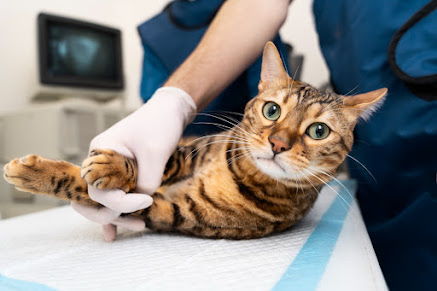Are Quaker Parrots the Perfect Pet for You?
The Quaker Parrot, also known as the Monk Parakeet or the Quaker Parakeet, is a captivating and intelligent bird species that has become a popular choice among bird enthusiasts and pet owners worldwide. With their striking plumage, remarkable vocal abilities, and playful personalities, Quaker Parrots have stolen the hearts of many. In this comprehensive guide, we will explore the fascinating world of Quaker Parrots, covering their origins, physical characteristics, behavior, care requirements, and much more.
Origins and Natural Habitat:
The Quaker Parrot is native to South America, primarily found in Argentina, Brazil, Bolivia, and Uruguay. It is the only parrot species that builds elaborate nests made of twigs and branches, resembling large communal structures known as "Quaker Colonies." These unique nests have even led to their alternative name, Monk Parakeet. Quaker Parrots are highly adaptable and have successfully established themselves in various urban environments around the world.
Physical Characteristics:
Quaker Parrots are small to medium-sized parrots, measuring about 11 to 13 inches (28 to 33 cm) in length from beak to tail. They exhibit a vibrant coloration, with a predominantly green plumage, a grayish breast, and a pale forehead. Quaker Parrots also feature a blue-colored wing covert and a distinctive gray face mask. They possess a strong and hooked beak, which they use for various activities like eating, climbing, and playing.
Personality and Behavior:
One of the most appealing aspects of Quaker Parrots is their engaging and lively personality. They are highly social birds and thrive on interaction and companionship. Quakers are known for their charming and comical antics, often mimicking sounds, talking, or engaging in playful behaviors. They are intelligent creatures and can be trained to perform tricks, solve puzzles, and even learn a vocabulary of words and phrases.
Vocal Abilities:
Quaker Parrots are remarkably vocal birds, known for their impressive ability to mimic sounds and human speech. They possess a keen sense of hearing and can quickly learn and imitate various sounds in their environment. While individual Quakers may vary in their speaking abilities, many have been known to acquire a large vocabulary, often surprising their owners with their capability to mimic voices and mimic household sounds.
Care and Maintenance:
Providing a suitable environment and proper care are crucial for the well-being of Quaker Parrots. Here are some key aspects to consider:
Housing: Quaker Parrots require a spacious cage that allows them to move around comfortably. The cage should have sturdy bars, as they enjoy climbing and playing. Providing perches and toys for mental stimulation is essential.
Diet: A balanced diet is vital for the health of Quaker Parrots. Their diet should consist of high-quality pellet mixes, fresh fruits, vegetables, and occasional seeds. Fresh water should be available at all times.
Socialization: Quaker Parrots thrive on social interaction. Owners should spend time with their birds, providing mental stimulation through play, training sessions, and engaging toys. Quakers require regular out-of-cage time to exercise and explore their surroundings in a safe environment.
Grooming: Quaker Parrots, like other parrot species, require regular nail trims and occasional beak trims. They also enjoy bathing, and providing a shallow dish of water for them to splash around can help maintain their plumage in good condition.
Health and Common Concerns:
Quaker Parrots are generally hardy birds, but it is essential to monitor their health and be aware of potential issues. Common health concerns in Quakers include obesity, feather plucking, and respiratory problems. Regular visits to an avian veterinarian are recommended to ensure early detection and treatment of any health issues.
Legality and Conservation:
It is important to note that Quaker Parrots are subject to legal restrictions in some regions due to their potential impact on agricultural crops and native bird populations. Before considering owning a Quaker Parrot, it is crucial to research and comply with local laws and regulations.
Conclusion:
The Quaker Parrot's endearing personality, exceptional vocal abilities, and striking appearance make it a popular choice for bird enthusiasts. However, owning a Quaker Parrot is a long-term commitment that requires proper care, socialization, and mental stimulation. With the right environment and attentive care, these charming and intelligent birds can bring joy and companionship to their owners for many years to come.






